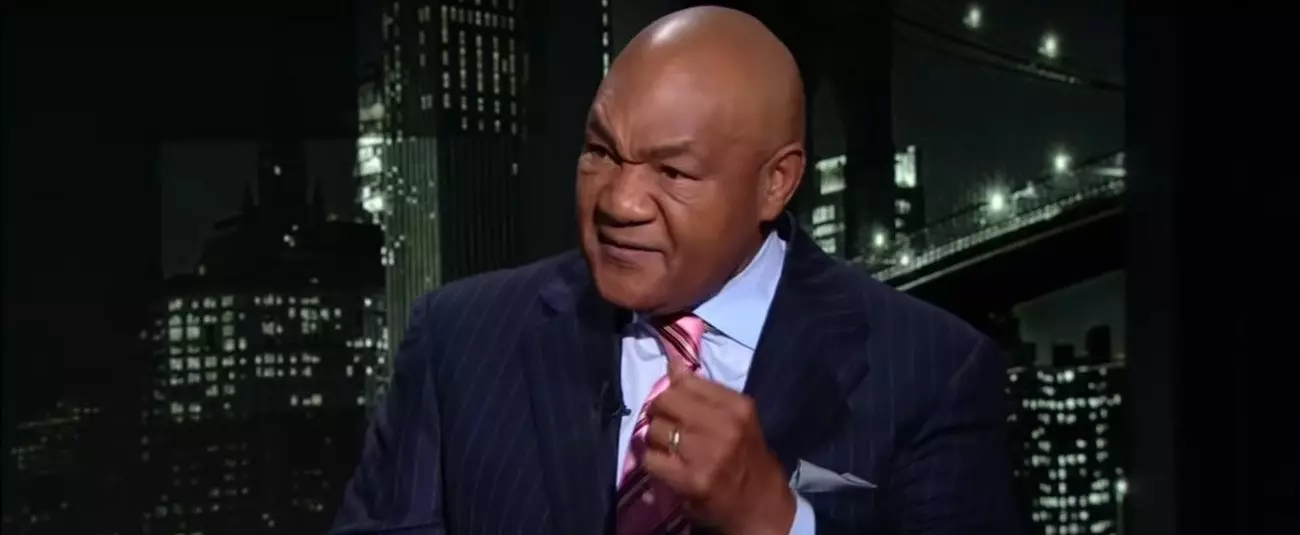In the world of boxing, few moments shine as authentically as the heavyweights’ battles under the glinting lights. The clash between Bobby Crabtree and George Foreman in September 1987 was not merely a fight; it was a narrative of resilience, revival, and respect. George Foreman, renowned for his smashing punches and enormous talent, had defied the odds by returning to the ring at the age of 38—an age many would deem a line in the sand for a sport as grueling as boxing. Crabtree, a spirited contender derogatorily dubbed “The Fighting Hillbilly,” had heard of Foreman’s entrance back into the squared circle and was eager to test his mettle against the legend.
Foreman’s comeback was a tale of hope for many athletes contemplating their return from retirement. His resilience inspired a generation, suggesting that greatness could be reclaimed even after its apparent loss. It was this very spirit that Crabtree would face, standing across from a man whose reputation was equally matched by his might.
Unforgettable Moments
The fight itself was a microcosm of Crabtree’s career. His heart and determination shone bright, enough to elicit a surprising admission from Foreman post-fight: Crabtree’s punches made him reconsider his return to boxing. But while Crabtree landed some solid shots, ultimately, Foreman’s experience and power overpowered the tenacity of the younger fighter. By the sixth round, Crabtree succumbed to the relentless pressure, a testament to Foreman’s formidable skill—and, perhaps in some ways, a harsh lesson for Crabtree.
Reflecting on those moments, Crabtree recounts with pride yet humor, “I was giving him a tough time! There were moments when I thought, ‘This is my chance!’ Yet, Foreman was more than just another fighter; he was a lion in the den of heavyweight boxing.” Those statements echo the belief that in any fight, whether victor or defeated, it’s the experience and the inner warrior that truly matters.
The Weight of History
What was especially compelling about Crabtree’s encounter with Foreman was their physicality. Crabtree weighed in at 201 pounds, which in the heavyweight division felt diminutive, especially stacked against the robust frame of Foreman. Such contrasts highlight the evolution of weight classes in boxing; in an era where agility was often overshadowed by brute force, Crabtree embodies the spirit of a fading knight in a changing kingdom.
Today, if he were fighting, he would likely be classified as a cruiserweight. This begs the question—has modern boxing matured into a realm where speed and tactical finesse outweigh raw power? Crabtree’s experiences with different fighters throughout his career, including his memorable knockout against King Ipitan, serve to enrich this dialogue surrounding evolution in boxing.
Legacy Beyond the Ring
Crabtree’s recollection of boxing’s illustrious past includes not only his fights against titans but also memorable skirmishes that shaped his character. “I had a career marked by fighters who were not just opponents but legends in their own right,” he shares, the sparkle of nostalgia dancing in his eyes. Through trials and triumphs, he forged connections that transcended the sport—finding community amid the chaos.
Facing formidable opponents like Michael Dokes and Kenny Keene led him to develop remarkable resilience. Crabtree reminisces about truly challenging moments, almost whimsically likening the experiences to educational lessons delivered through pain and perseverance. One particularly painful liver shot from Dokes reminds him not just of peril but of the resolve that has come to define his career.
A Fighter’s Journey
In moments such as these, one cannot ignore the fraility interwoven within a fighter’s existence. Crabtree openly discusses ongoing challenges with his neck, illustrating the invisible scars left behind by a life devoted to unyielding competition. Yet amidst this fragility, a tenacity remains fiery. “It’s treatment, not a cure,” says Crabtree. “But I make my way to the gym on the heavy bag.” This manifestation of grit emphasizes a spirit often admired—finding ways to continue, no matter the odds.
The conversation drifts towards loss, particularly as the sports community mourns Foreman. Crabtree, with both regret and respect, reflects on a friendship anchored in their shared experience within the sport. “We lost a giant this weekend,” he says, underlining the camaraderie built through competition, echoing sentiments familiar to every athlete who knows the weight of legacy.
In preserving such memories, Crabtree’s voice carries an undertone of hope. He symbolizes not just the battles but heart, resilience, and the ever-evolving landscape of boxing. Each fighter’s journey, much like his own, contributes a unique verse to the anthology of sports, crafting a tapestry woven from sweat, spirit, and tenacious will. For every punch thrown and every victory claimed, what remains most pivotal is the legacy each fighter leaves behind, echoing through the ages long after the final bell rings.

